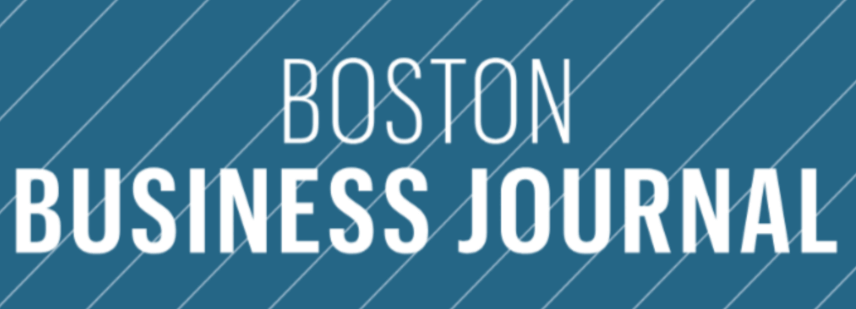BBJ Commentary: Looming Medicaid Cuts Would Hurt Gig Workers and Entrepreneurs

This Op-Ed was originally published by the Boston Business Journal on March 20th, 2025
Link: https://bizj.us/1qnbxf
In Massachusetts, access to Medicaid means more than just helping poor families afford trips to the doctor. It’s critical to our residents’ ability to raise kids, start a business, or make ends meet working essential jobs that backstop our economy.
More than 2 million residents rely on MassHealth, the state’s Medicaid program, which brings in $12 billion in federal funding to the state. Medicaid also supports 50% of jobs in our nursing homes and health centers that serve as the beating heart of local communities.
That’s why attempts by the congressional majority to divert Medicaid funding to pay for tax cut extensions poses a serious threat to our health-focused economy. This is the moment for Massachusetts leaders and activists to make a stand against what would be the most damaging cut to our economic and physical wellbeing.
“This budget resolution threatens the healthcare of 2 million Massachusetts residents,” said Gov. Maura Healey in a statement to the Boston Globe. “Additionally, cuts to Medicaid would cause further strain on our hospitals, nursing homes, home and community-based providers and community health centers. Providers would be forced to shut their doors or lay off staff.”
Medicaid is also a key support for other Bay State businesses and nonprofits, covering hundreds of thousands of workers and their families. This includes workers in jobs like food preparation, cleaning, and social services — all essential underpinnings of our economy.
Access to MassHealth also allows adults to take a risk on a starting a family, which is critical as Massachusetts continues to lose residents to less-costly states (though domestic outmigration has slowed in recent months).
The vast majority of our residents obtain health coverage either through MassHealth, the Massachusetts Health Connector, or an employer. Last year, 67 percent of companies offered health coverage to employees and their families according to the state’s Center for Health Information and Analysis (CHIA). However, most low-wage, part-time, and gig work jobs do not offer any health insurance. During the Covid pandemic, many residents took the risk to launch their own businesses with the security of Medicaid coverage. The gig economy also boomed, drawing thousands of new ride-share-drivers and other App-based gigs which now make up 5% of jobs in the state. Many of those workers rely on Medicaid-funded coverage, though employers Uber and Lyft entered into a settlement with Attorney General Andrea Campbell that will get drivers healthcare stipends in the future.
Protecting our 20-year legacy of universal healthcare
Massachusetts stands proudly behind our 98% health coverage rate, which continues to serve a beacon for the nation. This remarkable achievement didn’t happen overnight. It took nearly two-decades of dedicated policymaking, multilingual outreach, and grassroots community engagement to create this culture of coverage.
The Massachusetts Health Connector, the state’s ACA health insurance exchange, reached its highest enrollment in history this year, surpassing 360,000 people covered. About 85% of those members enrolled in the subsidized ConnectorCare program.
As we celebrate the 20th anniversary of Massachusetts’ landmark healthcare reform in 2026, leaders in the State House have a chance to continue to fund the ConnectorCare expansion, which has added another 60,000 middle-income residents to the program. (Disclosure: The marketing firm I own and operate has worked to promote the Health Connector.)
Investing in outreach and education will be even more critical if federal cuts hit and more residents must transition into subsidized ACA plans, as they did after the expiration of Covid-era Medicaid protections. The federal administration has already announced a 90% cut to the ACA Navigator program that helps enroll residents in multiple languages, supporting 140 Navigators across Massachusetts.
In addition to support from the State House, now is the time for activist organizations to put a stake in the ground and defend our universal healthcare gains — especially within communities that have historically been left behind.
Federal cuts would disproportionately affect communities like Brockton, Chelsea, Lawrence, and Springfield, which have among the highest Medicaid enrollment rates in the state. These are also the cities hardest hit by Covid-19, and grappling with economic and social repercussions of migration.
The Covid-19 pandemic taught us critical lessons we must not forget. Community health centers, nursing homes and local nonprofit organizations became lifelines. These organizations are all under threat if Medicaid cuts are enacted, and our economy will surely suffer.
Gov. Healey’s leadership provides us with a powerful example of proactive health advocacy. However, advocacy cannot be left to policymakers in the State House alone. Our communities must unite, organize, and mobilize, leveraging our collective strength and diversity. Healthcare providers and carriers must also step forward to educate the public about what’s at stake, clarifying potential impacts and how residents can maintain their coverage.
Congress tried to cut Medicaid’s budget in 2017 as well. Grassroots opposition played a crucial role in defeating the effort, along with extensive lobbying by state leaders, who urged Congress not to leave them with a huge fiscal gap in Medicaid. The strength of the response also came from empowering the voices most at-risk.
We have come too far to let Medicaid cuts roll back our progress and threaten our economy. Massachusetts can, and must, protect the near-universal coverage that we have worked so hard to achieve over these past two decades.
Josiane Martinez is the founder and CEO of marketing firm Archipelago Strategy Group (ASG) in Boston, which has worked on numerous health advocacy campaigns.